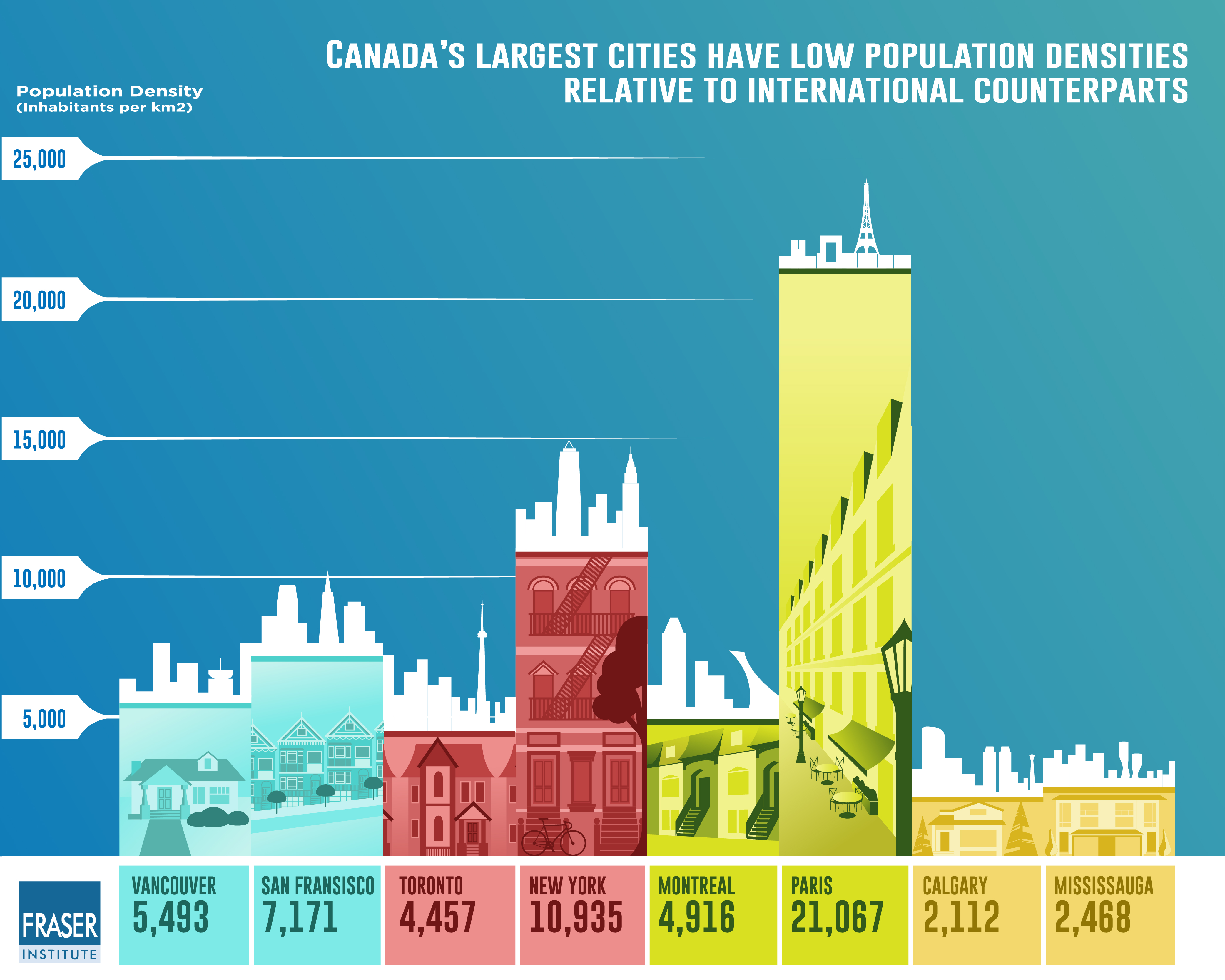Study
| EST. READ TIME 2 MIN.Canada’s biggest cities much less dense than other major U.S., international urban centres
Room to Grow: Comparing Urban Density in Canada and Abroad
Summary
- As Canada’s most successful metropolitan areas continue to grow, they face pressures to grow outward—through the construction of new communities at the urban fringe—and upward—by accommodating more residents in existing urban areas, leading to higher populations densities. This bulletin compares population densities across 30 cities located in high-income countries.
- To ensure comparability between the cities analyzed, the study includes only fully urbanized municipalities or municipalities with rural land area and population removed from the density equation.
- Of the 30 cities analyzed, Canada’s largest have low population densities relative to international counterparts. The coastal tourist hubs of San Francisco and Barcelona are 1.31 and 2.89 times as dense as Vancouver, Canada’s densest major city. Chicago, New York, and London are 1.03, 2.45, and 2.48 times as dense as Canada’s financial and media centre, Toronto. Paris is 4.29 times as dense as Montreal, and even the Toronto suburb of Mississauga is 1.17 times as dense as Calgary, Canada’s third most populous municipality.
- Moreover, higher population densities need not come at the expense of living standards. Preliminary comparisons between population density in the cities included in this essay and Mercer’s 2017 Quality of Living Ranking indicate that cities of comparable density vary significantly in Mercer’s ranking.
- A better understanding of how cities differ in population density and how higher density might (or might not) affect living standards encourages citizens and policymakers to rethink their perceptions of urban living.

Share
-

Josef Filipowicz
Senior Fellow (On Leave)
Josef Filipowicz, Senior Fellow of the Fraser Institute, is an independent urban and regional policy specialist, and former analyst at theCanada Mortgage and Housing Corporation and the Fraser Institute’s Centre for Municipal Studies. He holds an M.A. in Political Science from Wilfrid Laurier University and a Bachelor of Urban and Regional Planning from Ryerson University. He conducts research and produces reports on land-use regulations, housing affordability, property taxation, and municipal finance. He also comments frequently (in English and French) on policy issues in these fields, notably through radio and television interviews, panel discussions, public presentations, and blogs and op-eds. His work has been featured in numerous news outlets including the Wall Street Journal, Globe and Mail, Toronto Star, Maclean’s, Detroit News, and Financial Post.… Read more Read Less…
Related Topics
Related Articles
Policymakers must make Canada more attractive to investors—not just homebuyers
By: Steven Globerman
Is Ontario too Toronto-centric?
By: Livio Di Matteo
Federal government’s turbo-charged immigration helping drive housing demand
By: Jock Finlayson
Ottawa’s homebuilding plans might discourage much-needed business investment
By: Steven Globerman